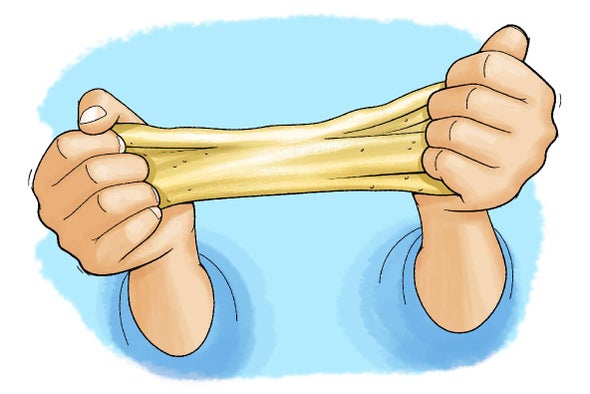 |
| October 21, 2022 |
 |
| |
| |
| |
| |
| |
| |
| |
| |
| |
| |
| Memory Naps Not Needed to Make New Memories Rats kept awake after exploring novel objects remembered the original items but not where they'd seen those objects, raising interesting questions about human sleep. |  | By Karen Hopkin | 05:27 | | | |
| |
FROM THE STORE
 | | | |
BRING SCIENCE HOME
 | | The Scientific Secret of Stretchy Dough |  You might know the products, but do you know the secret of great dough? With a little bit of chemistry--and some kneading--you can find out what flours make the best dough--and why. Credit: George Retseck | Do you remember the last time you baked cookies, bread or cake? Did your baked good turn out perfectly? Or was it a bit too flat or perhaps rubbery and tough, or maybe with clumps of dry ingredients? The problem might have been in how you mixed the dough—or with the type of flour you used. In this science activity you will knead, stretch and punch some pretty remarkable doughs and discover what provides structure and elasticity to your baked goods. Next time you prepare dough for bread, pizza, cookies, cake, pie or any other baked good, you'll know what to do! | |  | |
LATEST ISSUES
 |
| |
| Questions? Comments?  | |
| Download the Scientific American App |
| |
| |




